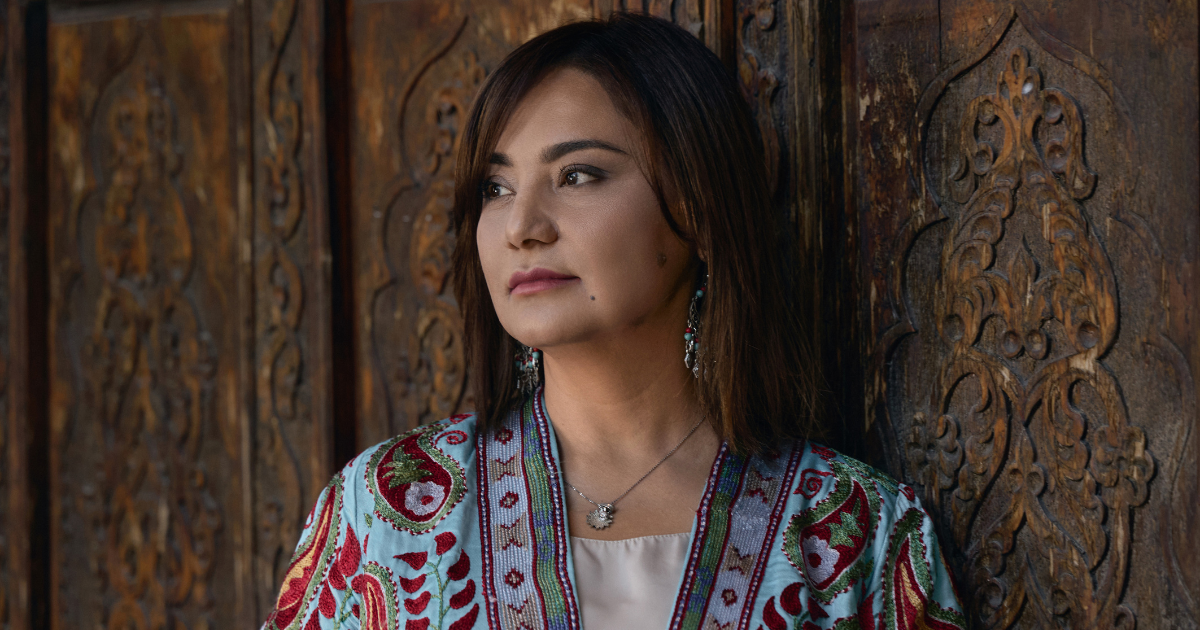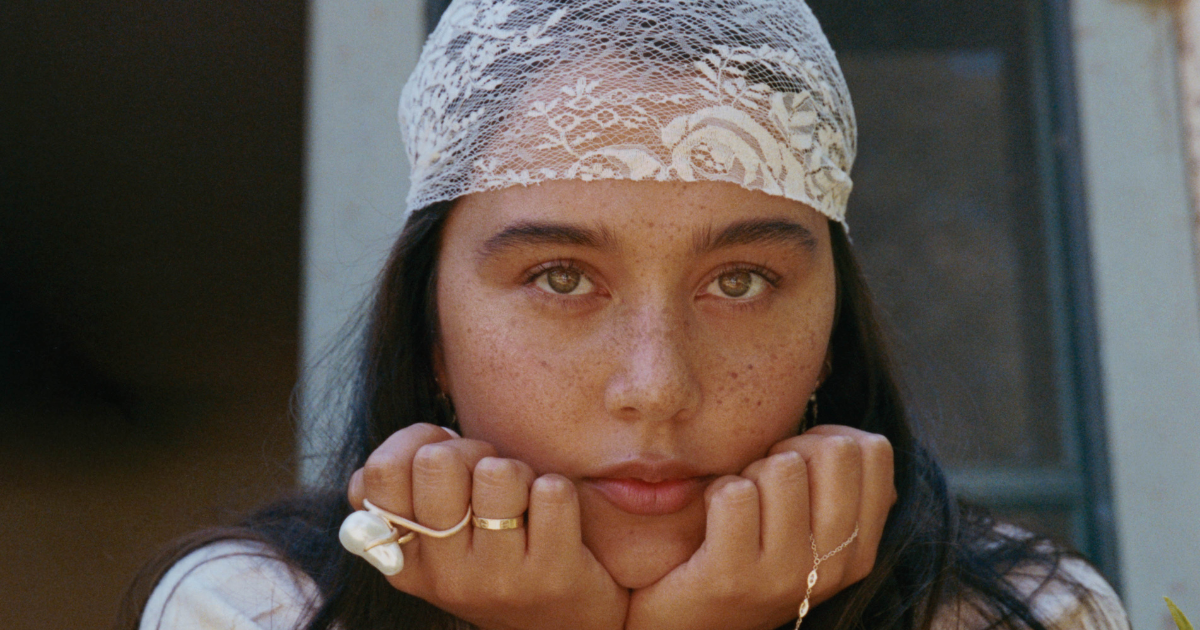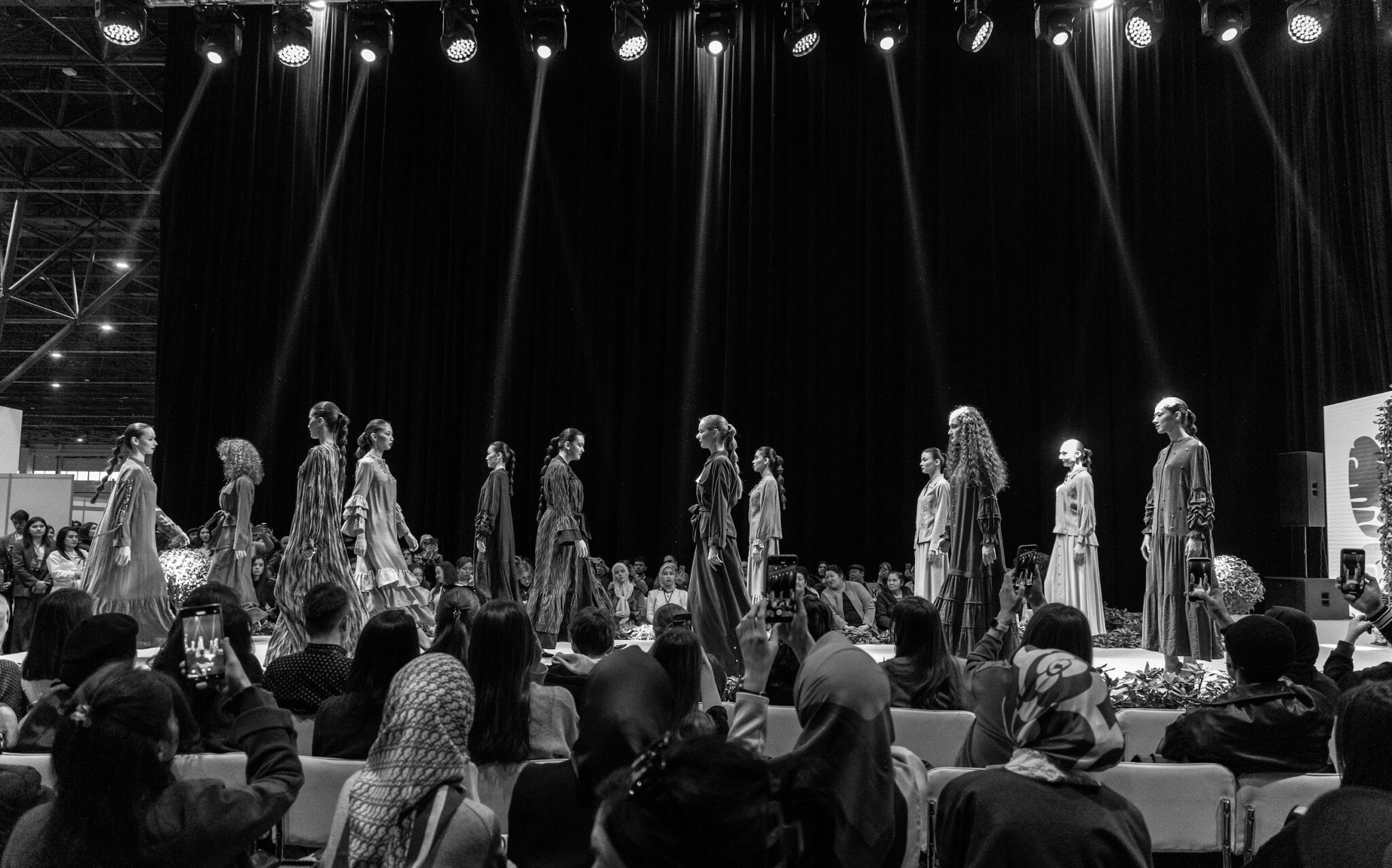Female DJs – to be or not to be?
Three female DJs from Uzbekistan shared the "inside" of the profession and their views on the stereotypes surrounding it
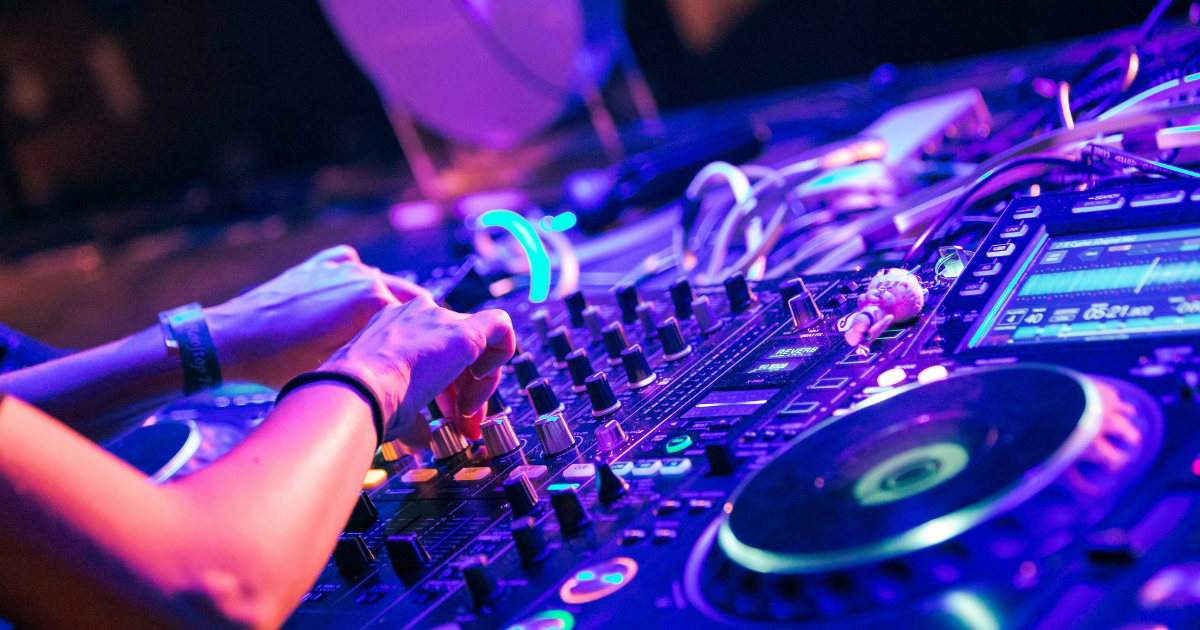
Sabina Inoyatova (Sabine) – a leading figure in the new generation of electronic music in Uzbekistan. Co-founder of the Sublimation label, which specializes in pushing the boundaries of the music industry, producing collaborative tracks, and providing new artists with opportunities to shine. She has been in the profession for seven years and studied DJing at the Riga DJ School. Besides DJing, she is a promoter/producer and while in Riga she helped run a club.

Photo: Sabina Inoyatova, photographer Timur Ko
Bella Gataulina (DJ Bella) – a performer by profession, she is known in the capital for her music and vibrant stage looks. She has been DJing for eight years, performing at various popular events in the capital city, including Coke Fest with Afrojack. In her free time, she is keen on photography.
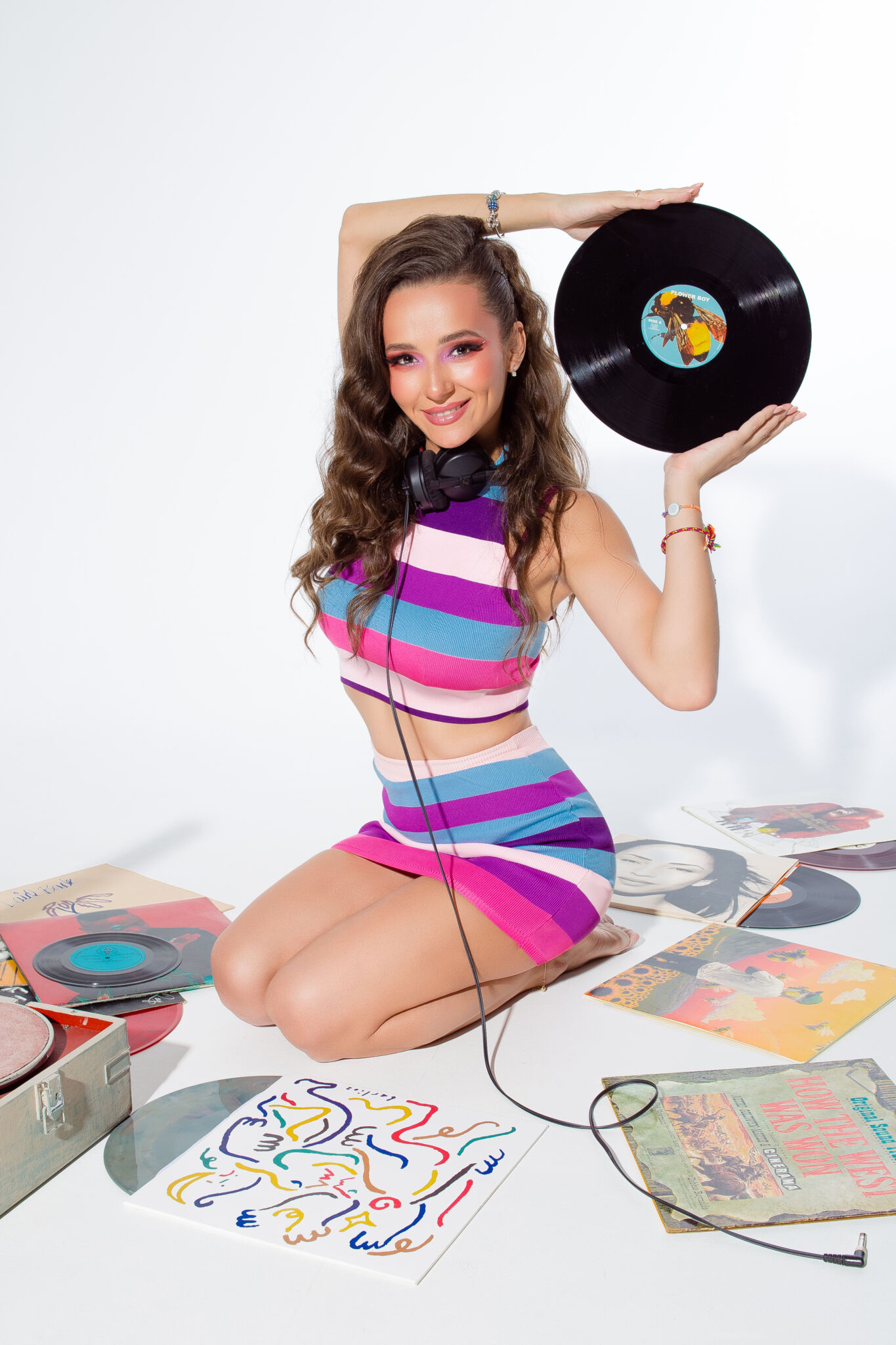
Photo: Bella Gataulina, photographer Eldar Yaznur
Diana Temirgaliyeva (Ianiiiron) – a representative of underground music in Tashkent. She has been in the profession for two years and also works as a project manager in an agency. She has performed at venues such as Sublimation, Stihiya, and the Rinse France project, among others.
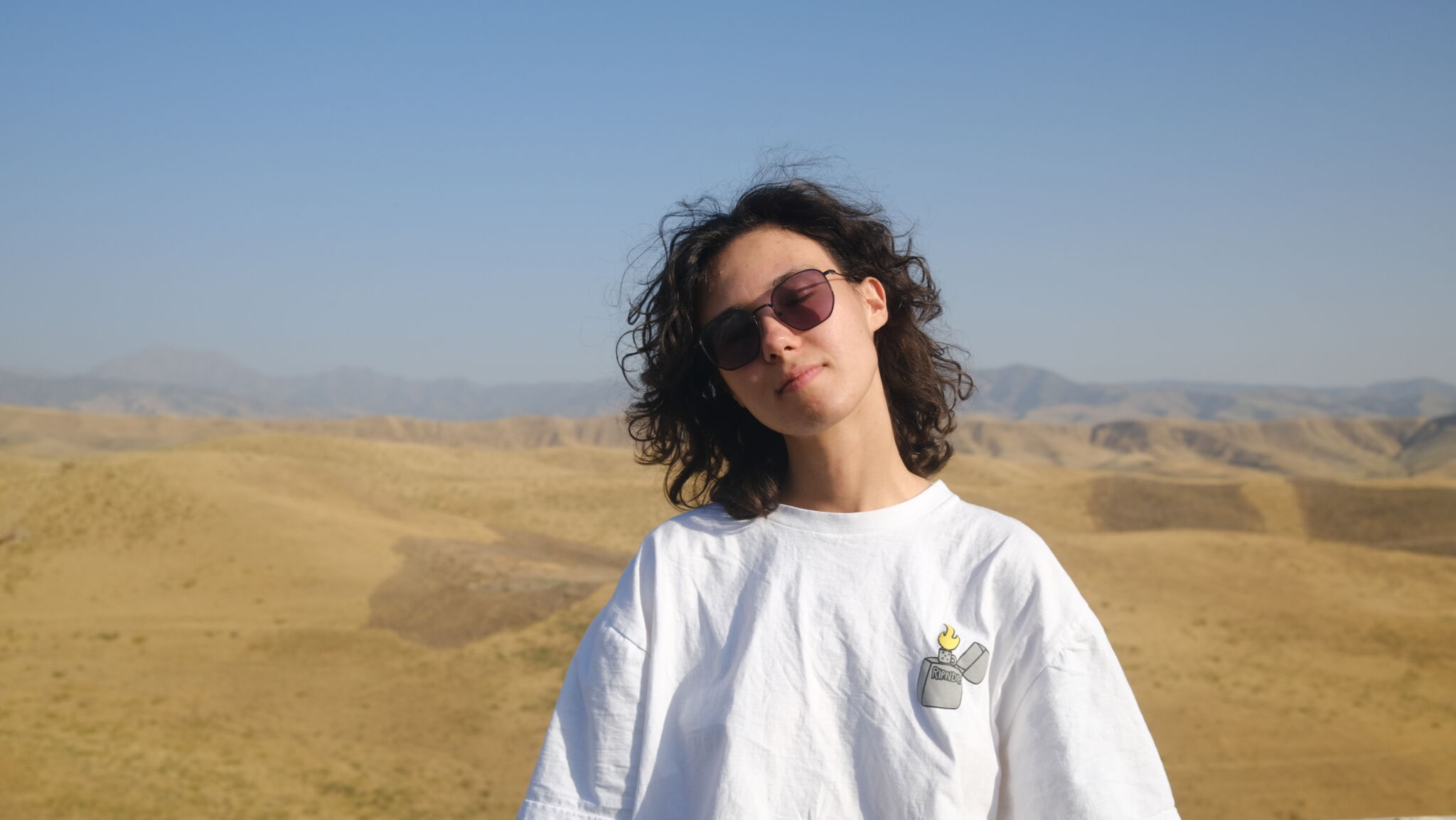
Photo: Diana Temirgaliyeva, photographer Maria Kytaeva
What is it like to be a female DJ in Uzbekistan?
Sabina: "It’s definitely not easy, there are many challenges. Especially if you're married and have children, as the upbringing can be very different. And the most important thing is that you have to prove that this is also a profession that carries responsibility. There's a strong stereotype about female DJs that needs to be fought."
Bella: "Considering our mentality, you sometimes have to deal with silly stereotypes and inappropriate behavior from men. There have been some cases where I was almost hit at weddings, and my equipment was damaged. Lately, I've been thinking about hiring a security guard to feel safe on stage."
Diana: "Being a female DJ in Uzbekistan is quite funny at times. Sometimes you feel like an "endangered species." There are girls in the industry, but you don’t see them often, although the entry barrier is not very high."
How long has this profession been considered as a "non-female" in this region, and what influenced the changes?
Sabina: "I think it has always been. The situation started to change in the last two years. But it’s worth noting that many line-ups are built as "only male," and very rarely "female" or "mixed."
Bella: "The changes began with the millennial generation, who are more open and free in their expressions."
Diana: "This profession remains predominantly male to this day, but I can note changes probably since 2018 when the Stihiya festival and the Fragment promo group came to light. From then on, the female side of the industry started to emerge. Changes have intensified with the appearance of other promo groups, and more girls have begun to take an interest in what DJs do and started trying it out. From my perspective, two inspirations are Mari Breslavets and Sabine. The first taught me the basics of DJing, and the second inspired me to try it out."
Share the most memorable moment during your work
Sabina: "For me, this moment is associated with my set at Boiler Room. I have experienced incredible stress, adrenaline, and at the same time, the best emotions and memorable moments."
Bella: "One of the recent memorable moments was Coke Fest (Coca-Cola), where I performed before the famous DJ Afrojack. It was unforgettable!"
Diana: "I would probably highlight my first invitation to Stihiya because I was just starting to perform, and it was a great honor for me. Also, I managed to get a large audience dancing at that time. Otherwise, every time feels like the first: it’s nice to see people dancing and to play on the same stage with big artists. All of this always stays in your memory and heart and is carefully kept there."
What is the hardest part of your profession?
Sabina: "Recovery after the performance and sleep. Mostly, I don't have time for this as weekends are family days. I have to perform at night and be a wife and mother during the day."
Bella: "I think it’s the preparation for the set, the search, and the selection of material. It takes quite a lot of time and effort. Another challenge in our profession is the night schedule. Moreover, standing in one place for 3-4 hours is not easy, especially if you’re wearing heels and have three sets in one evening."
Describe your signature style at work
Sabina: "I love incorporating Eastern notes and experimenting with genres. Interacting with the audience."
Bella: "I love to surprise and see real emotions in people, to feel and guess their mood. I never forget about my bright looks and my style."
Diana: "I often get bored playing exclusively "straight kick" or exclusively "broken." I always want to combine them somehow and get more dynamics in the mix."
If you had to choose one song to include in every set, what would it be?
Sabina: "Lately, I always want to play this track – Daisy Chain - Mamasei. The dance rhythms, as I am a dance lover."
Bella: "I’m a music lover, so it’s a tough question for me. Let it be: "Children - Tinlicker, Robert Miles."
Diana: "SuperAlisa – Tatarstan Super Good"
How profitable is this job?
Sabina: "Everything is relative: if it's a non-commercial project, I’m always ready to participate in the idea. If it’s commercial, I ask for the full fee. But at the moment, I’m currently in a stage where I invest a lot in myself and my education. I spend a lot of time in the studio. It’s hard to earn a living in Uzbekistan, considering female DJs are rarely invited."
Bella: "I am convinced that if you work hard and with love, any profession will be well-paid. As for DJing specifically, I think it’s considered a profitable occupation, and our salary is above average."
Diana: "It’s absolutely not profitable in our market. Or rather, it might be profitable for those who play more commercial music. The underground music here runs solely on enthusiasm. Often, the costs of buying tracks exceed the payment for performances. The situation is changing, but slowly."
How does this job affect your personal life?
Sabina: "The impact is the most challenging: from rejection to praise. I’ve experienced all these stages. Currently, most of the time, my family supports me, for which I am extremely grateful. My husband especially, gives me the most support."
Bella: "It doesn’t affect my personal life directly. If the partner is understanding and supportive, there are no problems."
Diana: "Thanks to DJing, I’ve gained a lot of acquaintances. These parties are very social."
Describe the DJing industry in Uzbekistan and your predictions for its future development
Sabina: "This industry is currently developing at an excellent pace. Many promoters are trying to develop our scene and community. A lot has changed in the last two years: imports, events. Boiler Room was held, and this year a large electronic music festival and conference on electronic music, DJing, and production are planned. There will be workshops and master classes. A DJing school is planned for the summer. My partner Madina and I have big plans. We need to develop this culture in Uzbekistan, to allow performing and advancing not only in this country but also abroad."
Diana: "I’d like to see more new names, more female names, more people who want to play different interesting genres. I don’t want people to "get stuck" in just one genre. The development is noticeable, but I’d like the promo groups not to give up and to remain passionate about doing something cool. There’s also a desire for a couple of permanent locations with good audio systems and music. I think Uzbekistan still has a lot of room to grow, the main thing is not to stop and keep showing people how "cool" and interesting it is."
Bella: "In Tashkent, new places and bars with quality, intellectual, and complex music are opening. Let’s not forget the electronic music festivals that have started actively taking place only in the last five years. For example, the renowned Stihiya festival! People come from abroad, which boosts tourism and positively impacts our country’s economy. Music is around us; it unites us. Therefore, it’s crucial to develop the music industry, and consequently, the DJing industry. I sincerely believe that we are on the right path."
